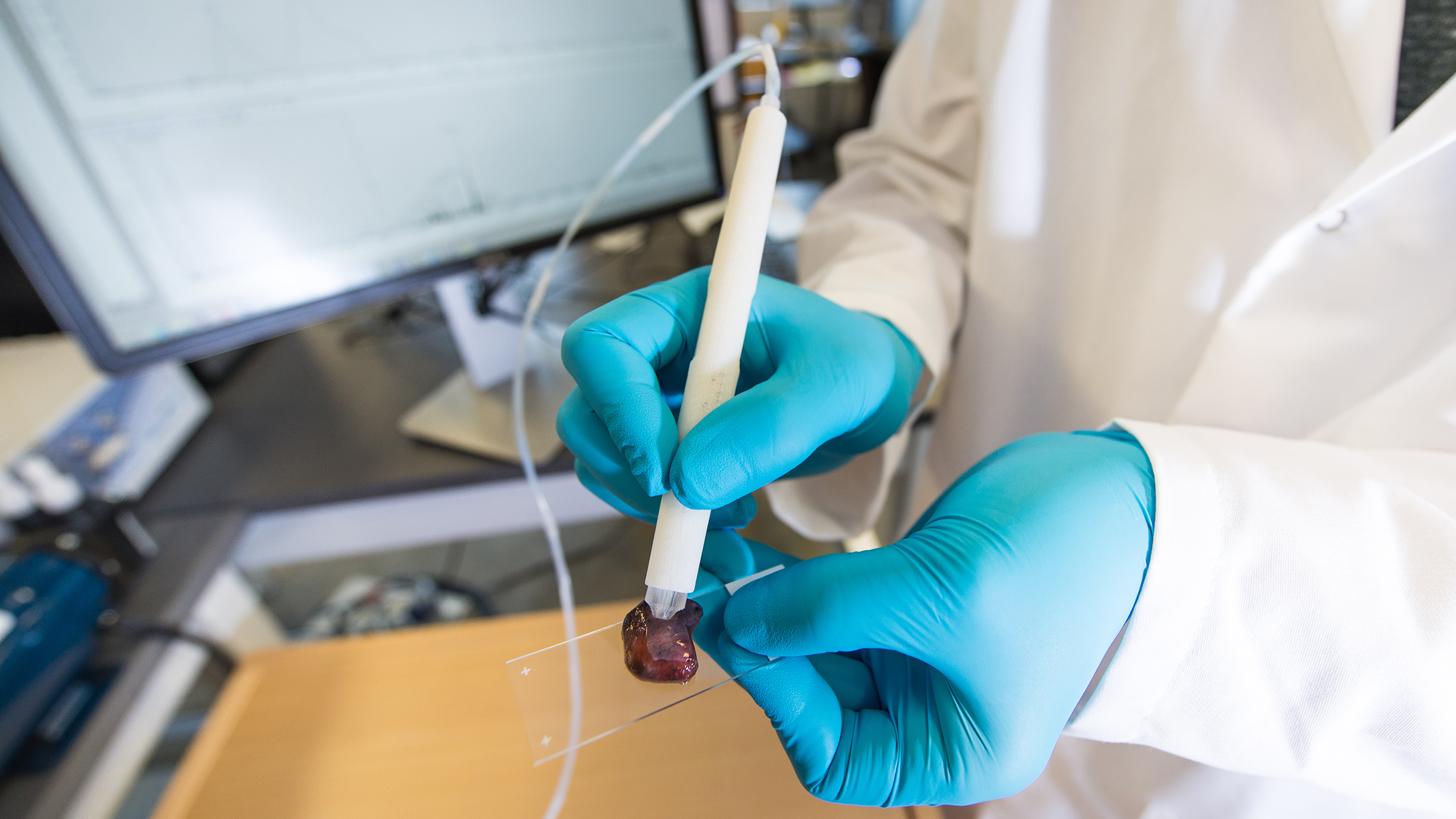Point of Discovery
Behind every scientific discovery is a scientist (or 12) and a story. “Point of Discovery” takes you on a journey beyond WHAT we know to HOW we know it. Listeners will meet the sometimes quirky, always passionate people whose curiosity unlocks hidden worlds.
FEATURED ★ Podcast
Can Tiny Bubbles Help Save the Planet?
Seagrasses store a lot of carbon in their tissues, making them a potential counterweight to rising levels of atmospheric CO2.

Of Fruit Flies, Nobel Prizes and Genetic Discoveries that Change the World
Last year, University of Texas at Austin alumnus Michael Young won the Nobel Prize in Physiology or Medicine for discovering the molecular mechanism behind circadian rhythms.

Can We Build Machines that are Less Biased Than We Are?
Think about some of the most important decisions people make – who to hire for a job, which kind of treatment to give a cancer patient, how much jail time to give a criminal. Statistics and Data Sciences faculty member James Scott says we humans are pretty lousy at making them.

Which Mental Superpower Would You Choose?
In this episode of Point of Discovery, we talk to neuroscientist Laura Colgin about the potential, and possible pitfalls, of new technologies that connect the human brain to a computer.

James Allison Eases Off the Brakes
In today's episode of Point of Discovery, UT Austin alum James Allison talks about the uphill climb to make cancer immunotherapy a reality.

When Science Communication Doesn’t Get Through
Climate change, vaccinations, evolution. Scientists sometimes struggle to get their message across to non-scientists.

A Score to Settle with Cancer
Jonathan Sessler knows the odds of bringing effective new cancer treatments to market are stacked against him, yet he tirelessly pushes ahead.

Tackling Science and Engineering’s Diversity Problem
Three leaders in science and engineering discuss the obstacles for women and racial minorities to enter or stay in STEM.

The Language Brokers
Researchers like Su Yeong Kim are debating whether being a language broker is good for children, or not.

Eyewitness to a Cosmic Car Wreck
What is the sound of two neutron stars colliding over 1 billion light years away?

Scientists: New Device Accurately Identifies Cancer in Seconds
A team of scientists and engineers at The University of Texas at Austin has invented the MasSpec Pen, helping improve treatment and reduce the chances of cancer recurrence.

About the Podcast
Behind every scientific discovery is a scientist (or 12) and a story. “Point of Discovery” takes you on a journey beyond WHAT we know to HOW we know it. Listeners will meet the sometimes quirky, always passionate people whose curiosity unlocks hidden worlds.
Hosted by Marc Airhart
Marc Airhart is the Communications Coordinator for the College of Natural Sciences. A long time member of the National Association of Science Writers, he has written for national publications including Scientific American, Mercury, The Earth Scientist, Environmental Engineer & Scientist, and StarDate Magazine.
Feedback?
Let us know what you think of our show—the good, the bad and the ugly.
Disclaimer
Point of Discovery is part of the Texas Podcast Network, brought to you by The University of Texas at Austin. Podcasts are produced by faculty members and staffers at UT Austin who work with University Communications to craft content that adheres to journalistic best practices. The University of Texas at Austin offers these podcasts at no charge. Podcasts appearing on the network and this webpage represent the views of the hosts, not of The University of Texas at Austin.
